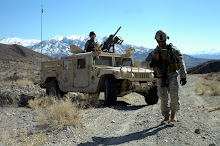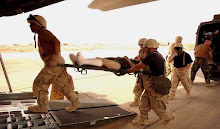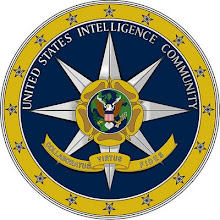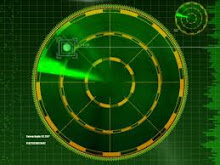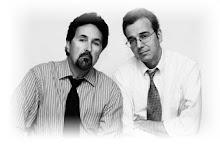By Steve Hammons
When Marine Corps Gen. James Mattis addressed the House Armed Services Committee on March 18, 2009, he made some key points that may be worth looking at from the perspective of "transcendent power" and "transcendent warfare."
Mattis is commander of the U.S. Joint Forces Command and his report to the committee included concepts that are applicable more broadly than many people might assume. There may be additional implications, ramifications or elements involved.
He pointed out that the Joint Forces Command is one of 10 combatant commands in the DoD and oversees a force of 1.16 million active duty, National Guard and Army Reserve soldiers, Navy personnel, Air Force personnel and Marines.
One theme of Mattis' presentation to the committee included the ideas involved in irregular warfare (IW). This concept is similar to terminology like unconventional warfare or guerilla warfare, yet there are now more complex and sophisticated considerations involved in IW preparedness and activities.
Mattis stated that a "core competency" in IW is needed by joint forces.
He also mentioned the term "hybrid warfare" which combines IW and more conventional methods. Mattis stated that adversaries may use methods of a "hybrid nature that combine any available irregular or conventional mode of attack, using a blend of primitive, traditional and high-tech weapons and tactics."
"We must have balanced and versatile joint forces ready to accomplish missions across the full spectrum of military operations — from large-scale, conventional warfare to humanitarian assistance and other forms of 'soft' power," he said.
As we delve into the ideas of soft power, smart power and what has been termed transcendent power, we might ask the same question Mattis rhetorically asked: "What capabilities are required?"
CONVENTIONAL AND UNCONVENTIONAL
One key element that Mattis noted was for education and training of joint personnel.
"A trained warrior may perform acceptably in a conventional operation, but irregular and hybrid wars demand highly-educated warriors to prevail," he explained.
Mattis added, "Special emphasis must be placed on human, cultural, language, and cognitive skills. A 'cognitive' warrior knows how to acquire knowledge, process information from multiple sources, and make timely, accurate decisions in complex, ethically challenging and ever-changing environments."
Here is where we might apply lessons learned from research into transcendent warfare. Cognition includes perceiving, thinking and understanding. Analyzing in the context of overall situational awareness and in complex environments is challenging – and necessary.
In these areas, innovative and outside-the-box approaches are useful, or even fundamentally crucial. This is especially true when significant research, development and operational experiences have demonstrated the value of certain methods.
"So, we must be prepared to think the 'unthinkable,' using our study and imagination to help us defeat the enemy," Mattis noted.
Imagination, deep and wide awareness, optimized human perception and other elements of human consciousness are key aspects that can be helpful. Transcendent warfare and transcendent power embrace research and operational successes that utilize all of these factors – and more.
"We must employ to our advantage the power of both inspiration and intimidation, each in the appropriate measure, to confound our enemies," Mattis stated.
Transcendent warfare and transcendent power can accomplish both of these objectives and might also be candidates for core competency by joint forces.
WHOLE GOVERNMENT, WHOLE NATION, WHOLE EARTH
Mattis also told the congressional committee that current and future challenges require "whole-of-government" approaches. He said military personnel must connect with civilian counterparts and create a synergy of effort.
Sharing information is an important element of this approach, he said.
"Essential to a whole-of-government approach for applying all aspects of national and international power is the ability to share information and situational awareness among all partners."
When information and perspectives are appropriately shared, an "interagency common operational picture" is created, Mattis explained.
This seems to take us back to the topics of education, training and communication efforts discussed in regard to competencies in soft power, smart power and irregular warfare activities.
When thinking about the advantages of a whole-of-government viewpoint that Mattis discussed, we might wonder if a whole-of-nation approach would produce even greater benefits. Would there be greater synergy if a more unified and more powerful joint effort involved broader and deeper elements of American society and of other groups and nations?
What additional kinds of resources and assets are out there if we use our intelligence and situational awareness to examine and optimize transcendent power?
Concurrent with ensuring security, what other accomplishments can be achieved by transcendent power in conducting humanitarian activities, implementing peace operations, expanding scientific knowledge, assisting human development, providing for increased prosperity around the world and improving the long-term prospects of the human race on Earth?
These questions deserve answers. And at this time we seem to be well-positioned to begin to comprehend those answers and the methods to get on the path to them.
Developing widespread joint core competency in transcendent warfare may be the first step on the path.
skip to main |
skip to sidebar

In the past 30 days, readers from approximately 40 countries or territories using about 20 languages visited the Joint Recon Study Group site.

To see more articles, scroll down the right-side column.

Steve Hammons

Articles from the Joint Recon Study Group site and Transcendent TV & Media site are included.
The Joint Reconnaissance Study Group is the San Diego-based, combined-service/agency, research-and-activities team in my novels "Mission Into Light" and sequel "Light's Hand." This site contains information of interest to the JRSG.
Home page: Joint Recon Study Group site
Readers from around the world visit this site.

In the past 30 days, readers from approximately 40 countries or territories using about 20 languages visited the Joint Recon Study Group site.
April 2021 threat alert: ‘Force protection’ for our troops now the responsibility of all Americans
First responders must deal with society’s problems, shortcomings, injustices every day
Could some UFOs be linked to Native American 'white stone canoe' legends, stories?
Wildland firefighter basic training available at community colleges, tech schools, training centers
‘Boomer remover’ coronavirus is bigger threat to WWII generation that saved the world
‘Black swan’ events that aren’t: Coronavirus, climate emergency, unidentified aerial phenonema
Reagan’s complete 1987 UN message on ‘alien threat’ overlooked: Grave danger here, now
Was Reagan briefed about UFOs and original ‘Day the Earth Stood Still’ movie?
My military draft lottery number was #165 during final Vietnam War years
“Keep On The Sunny Side,” by The Whites, from movie O Brother, Where Art Thou?”
Living along Ohio River for centuries, Native Shawnee called it ‘Kiskepila Sepe’ – ‘Eagle River’
Native American words around us: States, towns, rivers, lakes, terrain, plants, animals, military
Athens County, Ohio, was key spot when colonists, Redcoats fought Shawnee in 1774 battle
1787 Northwest Ordinance set course for Ohio, Indiana, Illinois, Michigan, Wisconsin, Minnesota
Smallpox-tainted blankets were 1763 bioweapon on northern Appalachian Mountains frontier
Diana Krall performs “Maybe You’ll Be There" live in Paris with Paris Symphony Orchestra 2001.
Books to read in 2021? Novels "Mission Into Light" and the sequel "Light's Hand"
Novel excerpt: Renew, prepare America with ‘Urgent Response Group’ for teens, young adults
Diana Krall performs “I Get Along” live in Paris with Paris Symphony Orchestra 2001.
Steve Tyrell sings “Give Me the Simple Life.”
Diana Krall performs “Love Letters” live in Paris with Paris Symphony Orchestra 2001.
Visit the article archives!

To see more articles, scroll down the right-side column.
Novel "Mission Into Light" overview on Amazon
Novel "Light's Hand" overview on Amazon
Adventures of the Joint Recon Study Group: Overview and synopses of activities and operations
Key chapter overviews: Points of interest in the novel "Mission Into Light"
Key chapter overviews: Points of interest in the novel "Light's Hand"
Multimedia rights available
English and foreign-language book rights, audio book and e-book rights for "Mission Into Light" and "Light's Hand" are available. Movie and TV rights are available.
I'm seeking agent representation for these works and rights.
Please contact Steve Hammons for more information at hammons55@gmail.com.
Feature film screenplay
I completed a feature film screenplay in 2006 based on “Mission Into Light” and “Light’s Hand” combining key elements of both novels.
The screenplay takes audiences into the adventures and discoveries of the Joint Recon Study Group and the relationships among team members, friends and associates as they explore leading-edge research and emerging transcendent developments.
I'm seeking agent representation for this screenplay.
.........................
I also wrote a TV series pilot script based on "Mission Into Light" and "Light's Hand" story. I'm seeking agent representation this script.
About the Author

Steve Hammons
About the Author
I was born and raised in southwestern Ohio near the Kentucky and Indiana borders, then went to college at Ohio University in the southeastern Appalachian region of the state near West Virginia.
I graduated with a dual major in communication (journalism focus) and health education (psychology focus) with a minor in pre-law.
Ohio U. is home to the respected Scripps College of Communication and E.W. Scripps School of Journalism.
I also completed two graduate-level courses in guidance counseling theory and method at Ohio U.'s College of Education, School of Applied Behavioral Sciences and Educational Leadership.
At the end of my undergraduate education at Ohio University, I moved to the beautiful American Southwest where I applied my education, continual training and and ongoing experience to related professional fields such as health care, journalism and special research areas.
My novels "Mission Into Light" and the sequel "Light’s Hand" are available in e-book and 6"x9" paperback from most online booksellers worldwide.
Readers review metaphysical-military-intelligence adventure novel ‘Mission Into Light’
My articles on DoD CultureReady blog, Defense Language and National Security Education Office
Transcendent TV & Media site
Past articles: Scroll down the right-side column for more articles.

Articles from the Joint Recon Study Group site and Transcendent TV & Media site are included.
New films, TV series, books tell stories of ‘Ohiyo’ River Appalachian mountain region
Hillbillies, pioneers and UFOs: Current major media projects explore southern Ohio
Well-known ‘Mothman’ case also about dedicated local journalist, Native history?
Film experts, fans celebrate rediscovery of Appalachian story ‘Spring Night Summer Night’
'Hillbilly' J.D. Vance, columnist Clarence Page find common ground in southwest Ohio roots
‘Phoenix lights’ UFO linked to multiple incidents around four-state Colorado Plateau?
UFOs, odd phenomena reported on perimeter of Colorado Plateau
Theory about 37th parallel and UFOs sparked book, TV shows, film concept
Sketchy dimensions: UFO investigations reveal need for caution, potential for beneficial discovery
Can UFO-acquired technologies help the U.S. economy?
Many Americans have Cherokee in the family tree
Americans with Cherokee roots can't rely on government bureaucracies to define them
Government-approved Cherokees don’t tell whole story?
Does tribal government politician speak for all Americans with Cherokee ancestry?
‘Official Cherokees’ disrespecting mixed-ethnicity Americans?
Could ‘Hillbilly Elegy’ author J.D. Vance have Appalachian Cherokee ancestry?
Journalism’s dilemma: Covering weird science
Movie ‘Sedona’ explores metaphysical mysteries, Nature’s beauty, human heart
Novel excerpt: Insight, understanding not always found in official reports, documents
Novel excerpt: From Sedona to Heaven – What is the dimension we call ‘Heaven?’
Interest grows in healthy aging, anti-aging, reverse-aging, transcendent aging
Analysis: Research company involved with UFOs opens up about activities
Startup company researching advanced tech, UFOs gives updates during Q&A
Leverage US resources to understand unknown objects encountered by Navy, defense expert says
US Navy UFO encounters: Space scientists speculate on ‘first contact’ with visitors
UFOs in the heartland: New movie, ‘Blue Book’ TV series set in southwestern Ohio
Year of UFOs, 1952, may play role in Disney movie ‘Tomorrowland’
UFO situation awareness: Phoenix conference hosts scientists, researchers, media, public
Appropriate security on UFOs probably 2-way street
Roswell was ET crash, says ex-CIA officer – what’s been going on since 1947?
Alleged briefing to Pres. Reagan: Original ‘Day the Earth Stood Still’ was UFO acclimation?
Beyond UFOs and extraterrestrials: Human consciousness
Journalism in media mix: New shows ‘Chasing UFOs,’ ‘Spacing Out’ help prepare public
Further UFO disclosure requires readiness, teamwork, education, intelligence
Disclosure, acclimation, security work together on UFO, ET challenges
Up to speed on UFOs and intelligent visitors? Revised ‘A.D. After Disclosure’ book released in May
Authors Zabel, Dolan explore adjusting to UFO truths in new book ‘A.D. After Disclosure’
Blog Archive
-
▼
2009
(34)
-
▼
March
(8)
- Transcendent warfare, transcendent power have pote...
- UFOs and public safety: Firefighter manual explain...
- Transcendent power has public safety applications
- Wounded troops: DARPA project to regrow human tiss...
- Joint competency in transcendent power needed
- Transcendent power is natural resource for ARPA-E
- Exploring and deploying soft power, transcendent p...
- Transcendent power reshapes hard power, soft power...
-
▼
March
(8)




























































